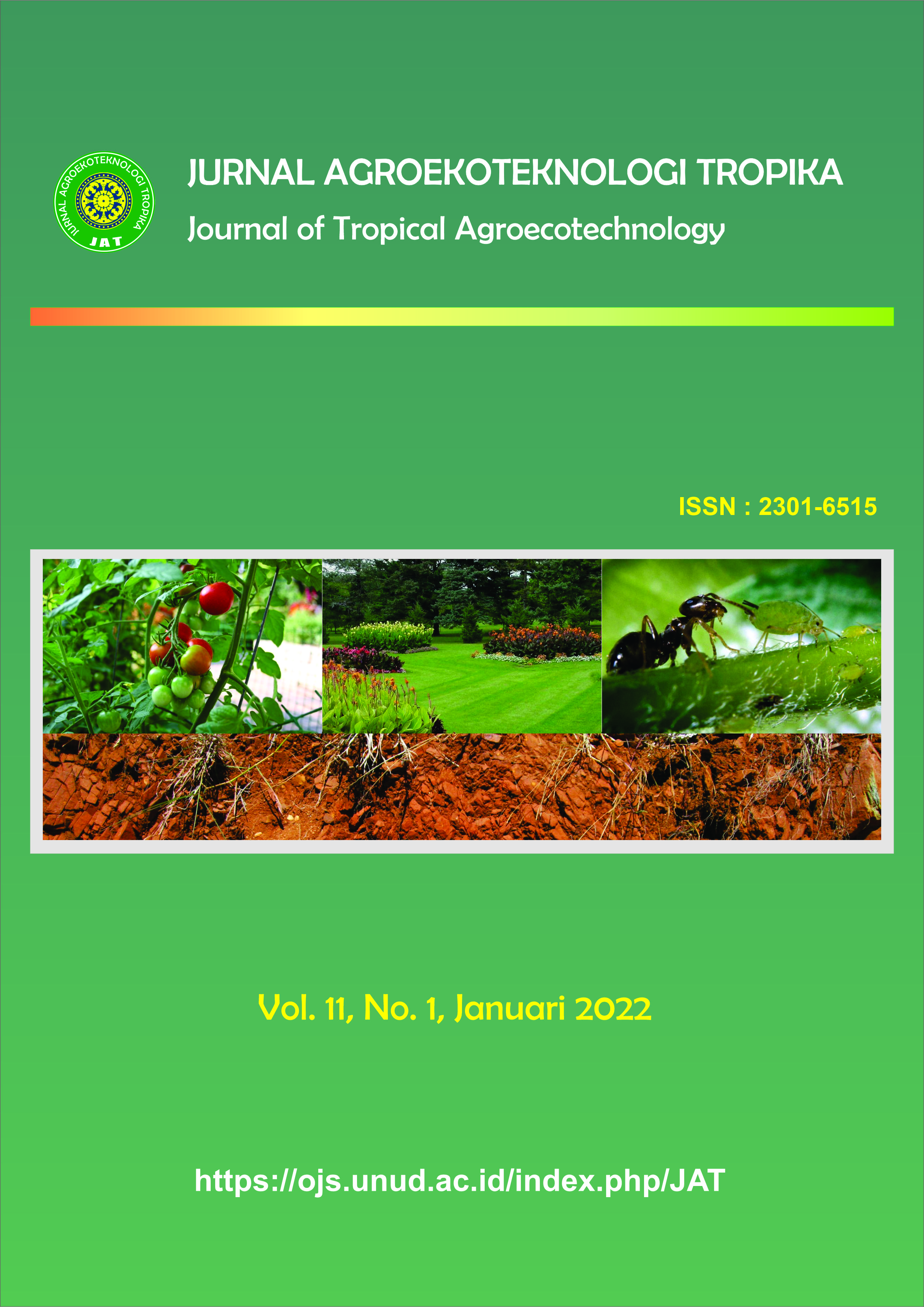Uji Efektivitas Jenis Dekomposer pada Proses Pengomposan Sampah Organik di Kota Denpasar
Abstract
Test the Effectiveness Some Kinds of Decomposers on the Organic Waste Composting Process in Denpasar City
This study aims to determine the quality of compost and decomposition rate of compost mix raw materials by using several kinds of decomposers. This research was conducted from November 2020 to February 2021 at the Sari Sedana Garbage Depot, on Bung Tomo IV Street number 1 in Denpasar, and for the analysis of compost samples located at the Soil Laboratory Agricultural Faculty of Udayana University. The design used in this study was a randomized block design. The compost mix raw materials (CM) consisted of 40% organic waste, 40% cow dung, 10 % husk charcoal, 8 % sawdust, 2 % dolomite, and decomposers (according to each treatment) + molasses. There were six treatments of various decomposers with four replications consisting of P0 (control): 100% organic waste (15 kg), P1: CM + EM4 and molasses, P2: CM + Beka and molasses, P3: CM + BA-5 and molasses, P4: CM + Biofit and molasses, P5: CM + Biogenic and molasses. The observed compost quality parameters included: C-organic, N-total, C/N ratio, P-available, K-available, moisture content, and pH. Data were analyzed using analysis of variance (ANOVA), followed by the Duncan’s Multiple Range Test 5% difference test. The results of the research showed that the use of decomposers had a very significant effect on the quality of the compost produced and composting process rate. The rate of decomposition and the best compost quality according to SNI 19-7030-2004 were shown by the P1 treatment with the EM4 as a decomposer.



